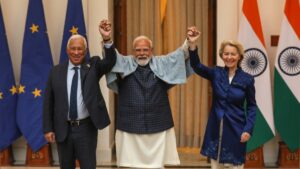
India and the European Union announced the conclusion of negotiations on a free trade agreement (FTA) following the summit in New Delhi.
According to the European Commission, trade liberalization will cover 99.3% for the EU and 96.6% for India (taking into account the partial liberalization of a number of items), with the EU eliminating tariffs on more than 90% of tariff lines and India on 86%.
The Indian side stated that the agreement provides access to the EU market for more than 99% of Indian exports in value terms, noting that the document will undergo legal review and final approval procedures.
According to EU profile materials, European agri-food exports will see a reduction in current high tariffs, including on alcoholic beverages—up to 30% for most wines, 40% for spirits, and 50% for beer. A number of Indian and industry sources also indicate that for certain categories, including passenger cars, tariffs may be reduced from 110% to 10% within an annual quota of up to 250,000 cars, and for premium wines – up to 20%.
EU-India trade in goods in 2024 amounted to around EUR 120 billion, with India being the EU’s ninth largest trading partner; for India, the EU is the largest trading partner in goods. The Indian Ministry of Commerce and Industry estimated bilateral trade in goods with the EU in the 2024-2025 financial year at $136.54 billion.
Source: https://expertsclub.eu/indiya-ta-yes-zavershyly-peregovory-shhodo-ugody-pro-zvt/
EU, FTA, INDIA, NEGOTIATIONS
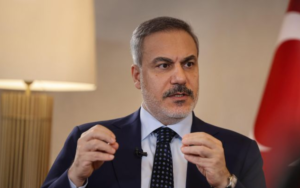
Peace talks between Russia and Ukraine may resume in Turkey, Turkish Foreign Minister Hakan Fidan said in an interview with broadcaster A Haber.
“Well, of course, we cannot go into details for reasons that you will understand, I mean, I think it (the talks – IF-U) could happen in Turkey, it could happen in other places. But this peace not only must happen, it will happen,” the minister said.
Fidan stressed that the war is now at its “darkest moment” and that both sides, according to him, are focused on destroying each other’s infrastructure. He noted that the use of drones and “kamikaze” drones makes it difficult to move around and conduct operations, and that the successes of the Ukrainian and Russian forces come at a high human cost.
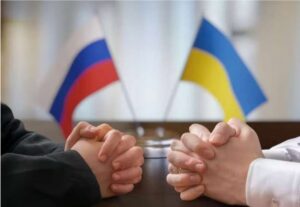
On May 16, 2025, the first direct talks in more than three years between delegations from Ukraine and Russia began in Istanbul, aimed at finding ways to end the ongoing conflict.
The meeting is being held at the Dolmabahçe Palace, mediated by Turkey and attended by high-ranking US officials.
The Ukrainian delegation is led by Defense Minister Rustem Umerov. It also includes Deputy Foreign Minister Serhiy Kyslytsya, Deputy Head of the Security Service of Ukraine Oleksandr Polak, and other high-ranking representatives of law enforcement and diplomatic agencies.
The Russian side is represented by Presidential Aide Vladimir Medinsky. The delegation also includes Deputy Foreign Minister Mikhail Galuzin, Director of the Main Directorate of the General Staff (GUGS) Igor Kostyukov, and other officials.
Before the start of the bilateral talks, trilateral meetings were held: first between Turkey, the US, and Ukraine, and then between Turkey, Russia, and Ukraine. Turkish Foreign Minister Hakan Fidan and US Secretary of State Marco Rubio are also participating in the talks.
Reactions and expectations
Ukrainian President Volodymyr Zelensky expressed disappointment at the absence of Russian President Vladimir Putin from the talks, saying that the Russian delegation “has no authority to make decisions.” He stressed that Ukraine is committed to achieving a 30-day ceasefire, while Russia insists on broader negotiations, including issues of territorial concessions and renouncing NATO membership.
The United States and European countries support the initiative to establish a 30-day ceasefire. US President Donald Trump said that significant progress is only possible if he meets with President Putin in person.
International support
China has expressed support for direct talks between Russia and Ukraine, calling on all sides to reach a fair and lasting peace agreement.
Turkey, represented by President Recep Tayyip Erdogan, continues to play an active role in mediating between the parties to the conflict, providing a platform for talks and facilitating dialogue.
Despite low expectations, the start of negotiations in Istanbul is seen as an important step towards a possible peaceful settlement.
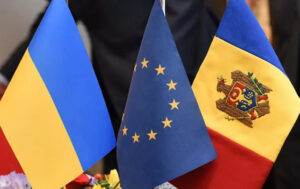
The membership negotiations began on Tuesday, a landmark move aimed in particular at signaling a vote of confidence in Ukraine’s future.
The European Union launched accession negotiations with Ukraine and Moldova on Tuesday, June 25, setting the fragile ex-Soviet states on a long path towards membership that Russia has tried to block. The landmark move is aimed in particular at signaling a vote of confidence in Ukraine’s future as Moscow has momentum on the battlefield almost two and a half years into the Kremlin’s invasion.
Ukraine’s President Volodymyr Zelensky called it a “historic day” ahead of the start of talks between officials from Kyiv and the EU’s 27 member states in Luxembourg. “We will never be derailed from our path to a united Europe and to our common home of all European nations,” the Ukrainian leader wrote on social media.
Ukraine and later its neighbour Moldova lodged their bids to join the EU in the immediate aftermath of Russia’s all-out assault in February 2022. The start of the talks marks just the beginning of a protracted process of reforms strewn with political obstacles that will likely take many years — and may never lead to membership.
Read more Subscribers only European Union approves opening of formal accession negotiations with Ukraine
Standing in the way along that journey will be not just Russia’s efforts at destabilisation but reticence from doubters inside the EU, most notably Hungary. But European Commission chief Ursula von der Leyen called the opening of talks “very good news for the people of Ukraine, Moldova, and the entire European Union. The path ahead will be challenging but full of opportunities,” she wrote on X on Tuesday.
So far, Ukraine – represented at the talks by Deputy Prime Minister Olga Stefanishyna – has won plaudits for kickstarting a raft of reforms on curbing graft and political interference, even as war rages. “Today is a historic day for Ukraine and Moldova, but also for the EU,” said Germany’s Europe minister Anna Luehrmann. “Both countries have made enormous progress in the area of the rule of law, the fight against corruption and freedom of the press.”
Complex process
Russia’s war in Ukraine has reinvigorated a push in the EU to take on new members, after years in which countries particularly in the Western Balkans made little progress on their hopes to join. The EU in December 2023 also granted candidate status to another of Russia’s former Soviet neighbours, Georgia. It likewise approved accession negotiations with Bosnia and has talks ongoing with Serbia, Montenegro, Albania and North Macedonia.
The meetings with Ukraine and Moldova on Tuesday will set off a process of screening of how far laws in the countries already comply with EU standards and how much more work lies ahead. Once that is done the EU then has to begin laying out conditions for negotiations on 35 subjects – from taxation to environmental policy.
It appears unlikely that there will be progress onto the next step in the coming six months, when Hungary – the friendliest country to Russia in the bloc – holds the EU’s rotating presidency. “It’s very difficult to say at what stage Ukraine is,” said Hungary’s Europe minister Janos Boka. “From what I see here as we speak, they are very far from meeting the accession criteria.”
The start of the talks resonates powerfully in Ukraine as it was a desire for closer ties with the EU that sparked protests back in 2014 that eventually spiralled into the full-blown crisis with Russia. The talks also come at a tense time in Moldova after the United States, Britain and Canada warned of a Russian “plot” to influence the country’s presidential elections coming up in October.
Wedged between war-torn Ukraine and EU member Romania, Moldova’s pro-Western authorities frequently accuse the Kremlin of interfering in its internal affairs. President Maia Sandu has accused Moscow – which has troops stationed in a breakaway region of the country – of aiming to destabilise Moldova ahead of the vote. “Our future is within the European family,” Sandu wrote on X. “We are stronger together.”
Le Monde with AFP
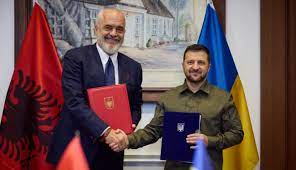
Ukrainian President Volodymyr Zelensky in Tirana will hold a meeting with the Prime Minister of Albania Edi Rama, will participate in the summit “Ukraine – Southeast Europe”.
“With the Prime Minister of Albania and his team we will hold talks on defense and political cooperation, support for the Formula World and work on security agreements. Albania is one of the countries that joined the G7 Vilnius Declaration, for which we are very grateful,” Zelensky wrote in his Telegram channel on Wednesday, calling Edi Rama an uncompromising friend of Ukraine.
“In the format “Ukraine – Southeast Europe”, which is meeting for the second time, we will talk about our common path to the Euro-Atlantic goal. I will offer to support Ukraine’s efforts to ensure a just and lasting peace, the organization of the Global Peace Summit in Switzerland,” he informed.
In addition, the President of Ukraine will hold bilateral meetings with the participants of the summit.
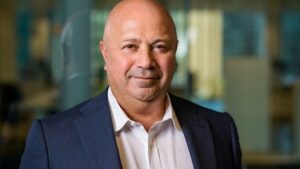
Kaan Terzioğlu, CEO of VEON Group, the parent company of Ukraine’s largest telecom operator Kyivstar, plans to return to Kyiv in late January to meet with his team and continue the dialogue with the Ukrainian authorities, he said in an interview with Forbes Ukraine.
“I hope that we will meet with many stakeholders, including the Ukrainian government, but not only,” Terzioglu said.
He added that during his first visit in October last year, he was unable to talk to Deputy Head of the Presidential Office Rostyslav Shurma, who has been publicly stating the possibility of nationalizing Kyivstar since July last year, and hopes that he will be able to do so during his upcoming visit.
“When the rumors emerged and Mr. Shurma gave his interviews, it had a significant impact on trading volumes and share prices. Now the shock has passed, but we lost almost 30% of the value of our shares during that period,” stated the CEO of VEON.
Commenting on the seizure of 47.85% of Kyivstar shares, which is comparable to Letter One’s stake in VEON, Terzioglu said that an appeal has been filed and expressed hope that the seizure will be lifted and this will help reassure international investors. He emphasized that VEON owns all 100% of Kyivstar’s shares, and Letter One, according to his information, has distanced itself from co-owners Mikhail Fridman and Petr Aven, who are subject to international sanctions, and is not subject to such international sanctions.
According to VEON’s CEO, the seizure of Kyivstar shares does not affect the company’s operations, ability to operate and maintain its networks. “The arrest only affects the ability to receive dividends or transfer shares from one owner to another,” Terizoglu explained.
Earlier it was reported that the Shevchenkivskyi District Court of Kyiv reduced the package of seized shares of Kyivstar from 99.994654% to 47.85%, and the seized share of LifeSell LLC from 100% to 19.8% as part of interim measures in the case against Alfa Group co-owner Mikhail Fridman opened in late September. He made such changes to the earlier ruling of October 4 based on a motion filed by a prosecutor from the Prosecutor General’s Office due to a typo. As for the rest of the seized assets, the court confirmed the accuracy of their original description. In particular, 100% of the corporate rights of three Kyivstar-affiliated companies, including Kyivstar.Tech, Helsi, and the Ukrainian Tower Company, remain under arrest.